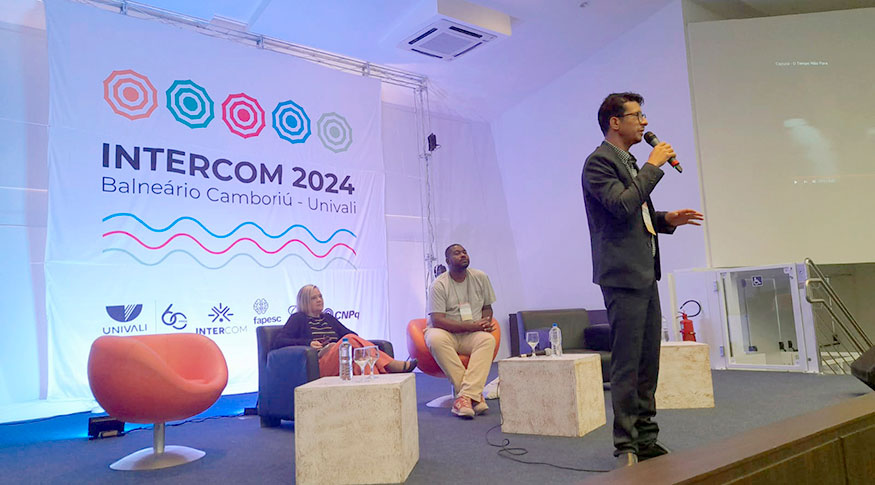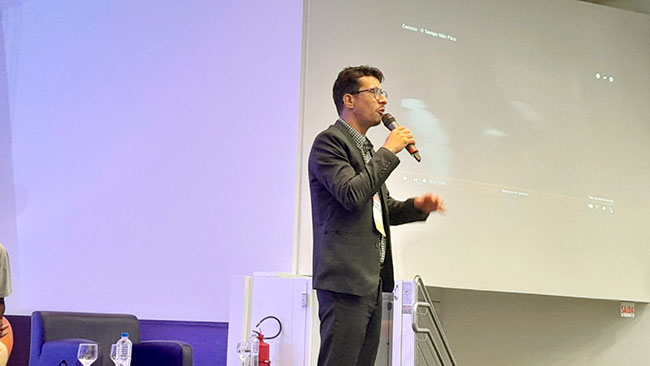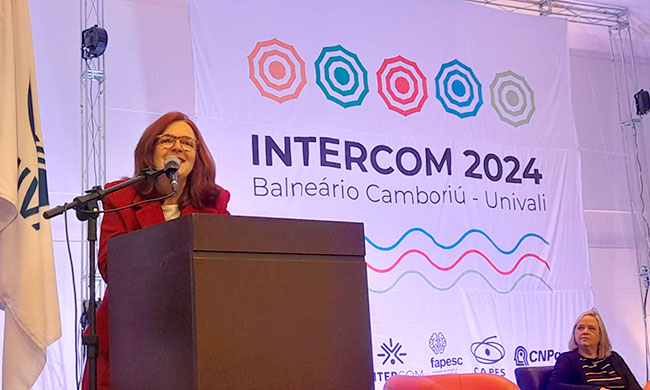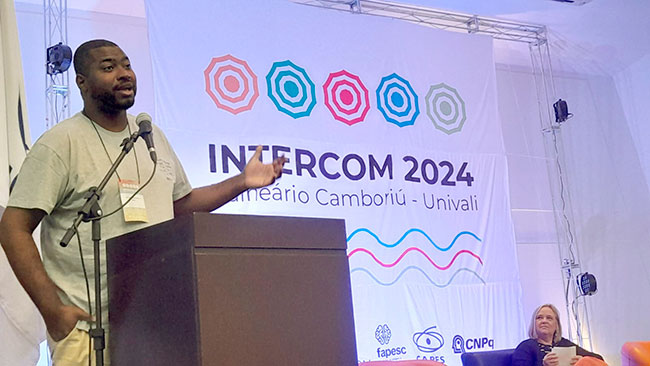IBGE discusses equality and citizenship during Brazilian Congress of Communication Sciences
September 05, 2024 10h30 AM | Last Updated: September 06, 2024 10h03 AM

Marcio Pochmann, President of the IBGE, participated in the opening session.
On Wednesday 4, the IBGE participated in the 47th Brazilian Congress of Communication Sciences, at the auditorium of the Balneário Camboriú Campus of the University of Vale do Itajaí (Univali), located in the neighborhood of Municípios, Balneário Camboriú (SC). In the event, the Coordinator General of the Center for Information Documentation and Dissemination (CDDI CCS), José Daniel Castro da Silva, represented the IBGE during the "Panel 2 Cycle of Studies - Data literacy for equality and citizenship" and discussed the role of the Digital Era in this theme, based on actions that the IBGE has talked with the academic community.
The panel also counted with Pollyana Ferrari, teacher of the Program of Postgraduate Studies on Technologies of Intelligence and Digital Design (TIDD) of the Catholic Pontifical University of São Paulo (PUC-SP) and José Messias, Coordinator of the Research Laboratory in Games, Gadgets and Mediations in Network of the Federal University of Maranhão (GamerLab/UFMA). The panel was mediated by Ariane Pereira, Intercom´s Scientific Director.
Castro explained that "the IBGE is a surveying organization with a number of indicators, though it also discusses the Digital Era, searching for new data that represent our time.
The Coordinator of the CDDI CCS reinforced that the "digital era dispute is in our hands. We, communicators, are ahead in this era and the IBGE aims at carrying out a survey with Intercom to map it through a "Digital Era Overview" and apply its discoveries on the public policies.

Pollyana Ferrari highlighted the impact of new technologies on new generations, as the case of Artificial Intelligence and deep fakes, being misinformation one of these impacts. "The world will face a new era of relevant risks and uncertainties over the next years. We should recognize that fake news are a type of misinformation varying from the correct use of manipulated data to the incorrect use of true data," explained the researcher.
Mentioning a study of the International Monetary Fund (IMF), Ferrari also told that "the development of AI should affect nearly 40% of the jobs in the world." The professor also mentioned some cases used in foreign and Brazilian companies, which replaced workforce.

She was followed by José Messias, who brought the experience of the course for teachers in multimodal, playful and affective methodology, carried out at the Imperatriz Campus of the Federal University of Maranhão (UFMA). ""We offer a course of media literacy to teachers of the Municipal Secretariat of Education of Imperatriz (MA). We carry out activities using analog games, like puzzles, as well as on-line. It is important to look for playful things for the success of the training."





















